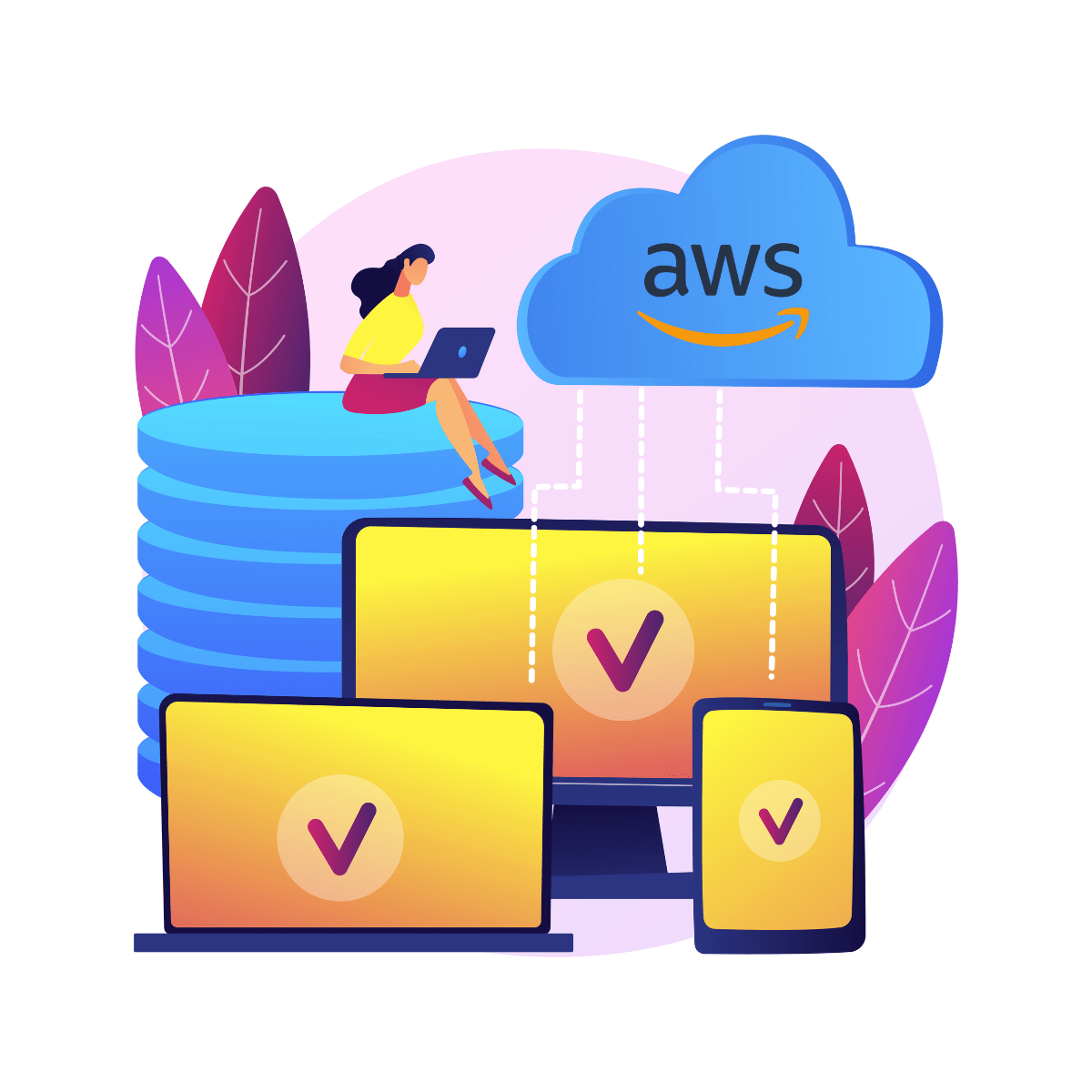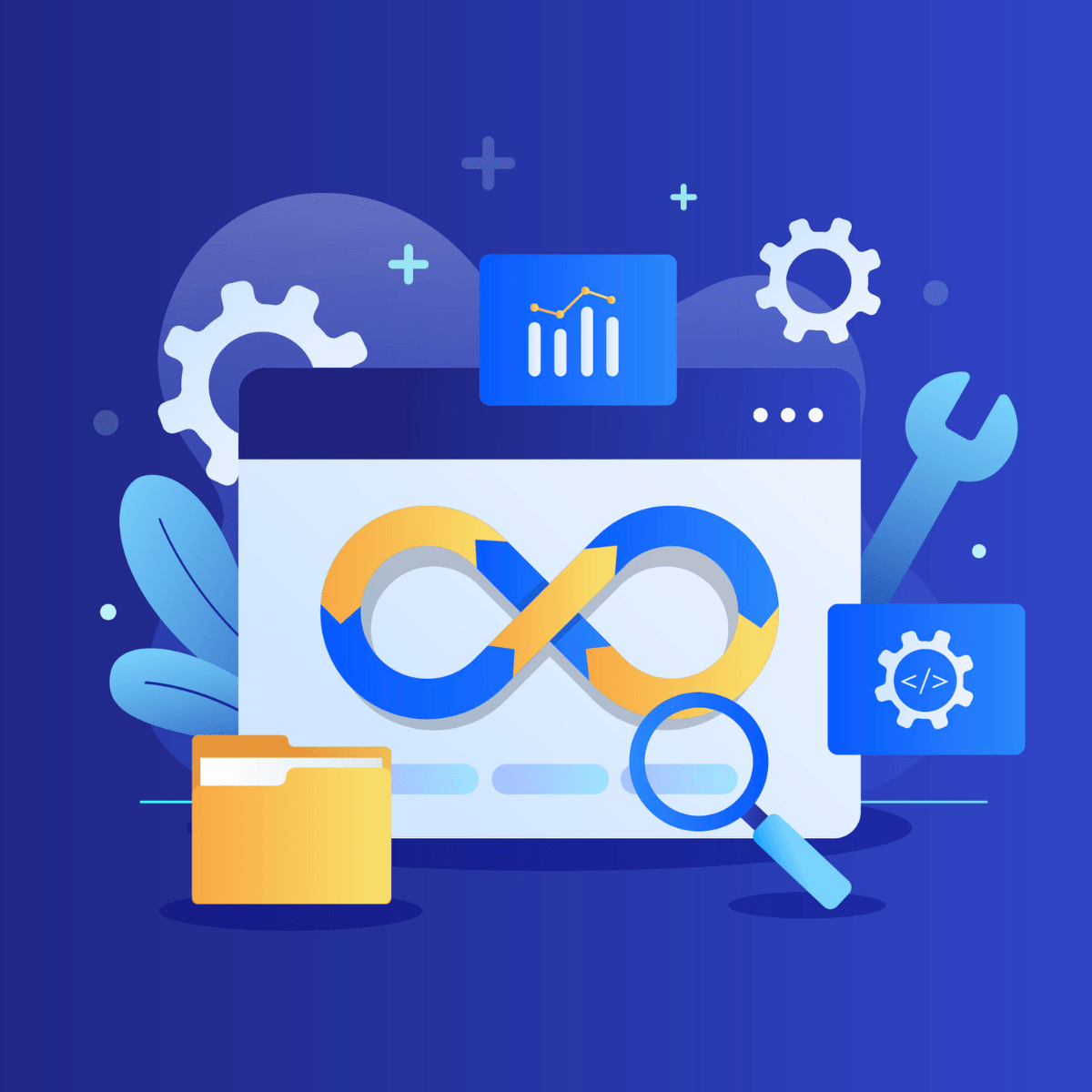Scalability
derstanding Scalability: A Comprehensive Guide
Scalability, at its core, refers to a system's ability to handle a growing amount of work or its potential to be enlarged to accommodate that growth. Imagine a small lemonade stand that becomes incredibly popular. If the stand can efficiently serve an increasing number of customers by, for example, adding more staff or a bigger pitcher without long waits or a decrease in lemonade quality, it's demonstrating scalability. In the digital world, this means an application, network, or infrastructure can maintain or even improve its performance and cost-effectiveness as the number of users, data volume, or transaction rates increase. This concept is fundamental in today's technology landscape, ensuring systems can adapt smoothly whether a website's user base explodes overnight or a company steadily expands its operations.
Working with scalability can be deeply engaging. It involves the intellectual challenge of designing systems that are not just functional for today but are also prepared for the unknown demands of tomorrow. This foresight and strategic planning can be incredibly rewarding. Furthermore, as businesses increasingly rely on digital infrastructure, the ability to ensure systems perform reliably under pressure directly impacts user experience and business success, making the work both critical and exciting.
Introduction to Scalability
This section delves into the foundational aspects of scalability, providing a clear understanding of what it means and why it's a cornerstone of modern technology.
Definition and Core Principles of Scalability
Scalability is the capability of a system, network, or process to handle an increasing amount of work, or its ability to be enlarged to accommodate that growth. Essentially, a scalable system can adapt to greater demand without a corresponding drop in performance or a significant increase in operational costs. Think of it like a well-designed highway system that can accommodate more cars during peak hours by having enough lanes or smart traffic management, preventing gridlock. The core principles revolve around flexibility, efficiency, and resilience. A scalable system should be able to dynamically adjust its resources – whether that means adding more processing power, storage, or bandwidth – to match the current demand. This ensures that users continue to have a smooth experience even as the system grows or experiences sudden surges in activity. It's not just about getting bigger, but getting bigger gracefully and cost-effectively.
Several factors underpin the concept of scalability. One key aspect is the system's architecture; how it's built fundamentally impacts its ability to scale. Another is the ability to manage resources effectively, adding them when needed and, importantly, releasing them when demand subsides to control costs. Finally, a truly scalable system also considers fault tolerance – the ability to continue operating even if some components fail. This ensures reliability alongside growth.
Understanding these core principles is the first step toward appreciating the complexities and importance of designing and maintaining scalable systems in a world increasingly reliant on digital infrastructure.
Historical Context and Evolution of Scalability in Technology
The concept of scalability in technology isn't new, but its importance and the methods to achieve it have evolved dramatically. In the early days of computing, scalability often meant upgrading to a more powerful mainframe computer – a costly and disruptive process. As computing became more distributed, with the rise of client-server architectures and eventually the internet, the challenges of scalability shifted. Suddenly, applications needed to serve a potentially global audience, and the old models of simply buying bigger hardware became unsustainable.
The advent of the internet and web-based applications marked a significant turning point. Companies like Google, Amazon, and Netflix faced unprecedented scaling challenges, needing to serve millions, and then billions, of users. This spurred innovation in distributed systems, load balancing, and database technologies. The rise of open-source software also played a crucial role, providing the building blocks for many scalable solutions. More recently, cloud computing has revolutionized scalability, offering on-demand resources and services that allow organizations to scale their infrastructure up or down with relative ease and pay-as-you-go models. This has democratized access to scalable infrastructure, enabling startups and smaller organizations to build applications that can reach a global scale without massive upfront investments in hardware.
The journey of scalability reflects the broader evolution of technology itself – from centralized, monolithic systems to decentralized, flexible, and increasingly intelligent architectures. This historical context is important for understanding the current landscape and appreciating the sophisticated solutions available today.
Importance in Modern Systems (e.g., Cloud Computing, Distributed Systems)
In today's digital-first world, scalability is not just a desirable feature; it's often a fundamental requirement for survival and success. Modern systems, particularly those built on cloud computing platforms and employing distributed architectures, rely heavily on scalability to meet fluctuating user demands, ensure high availability, and optimize costs. Consider an e-commerce website during a holiday sale, a streaming service launching a popular new show, or a social media platform experiencing a viral event. Without the ability to scale rapidly and efficiently, these systems would quickly become overwhelmed, leading to poor user experience, lost revenue, and damaged reputations.
Cloud computing, by its very nature, is designed around the principle of scalability. Providers like Amazon Web Services (AWS), Microsoft Azure, and Google Cloud Platform (GCP) offer a wide array of services that allow businesses to automatically adjust their resource allocation based on real-time demand. This elasticity means companies can handle peak loads without over-provisioning resources during quieter periods, leading to significant cost savings. Distributed systems, which break down large, complex applications into smaller, independent components (like microservices), also inherently support scalability. Each component can often be scaled independently, allowing for more granular control and efficient resource utilization.
Furthermore, scalability is crucial for innovation and future-proofing. Businesses need the ability to experiment, launch new features, and expand into new markets without being constrained by their existing infrastructure. A scalable architecture provides the flexibility to adapt to changing business needs and technological advancements, ensuring that systems can evolve alongside the organization. In essence, scalability underpins the performance, reliability, cost-effectiveness, and adaptability of almost every significant modern digital service.
Key Scalability Techniques
Achieving scalability isn't magic; it relies on a set of well-understood techniques and architectural patterns. This section explores some of the most critical strategies that engineers and architects use to build systems capable of handling growth and fluctuating demand.
Horizontal vs. Vertical Scaling: Differences and Use Cases
When a system needs more capacity, there are two primary ways to scale it: vertically or horizontally. Understanding the difference between these approaches is fundamental to designing scalable systems.
Vertical Scaling (or "scaling up") involves increasing the resources of an existing single server or component. This could mean adding more CPU power, more RAM, or faster storage to an individual machine. Think of it like upgrading your personal computer to a more powerful model. Vertical scaling is often simpler to implement initially, as it doesn't fundamentally change the system's architecture. It can be a good choice for applications with specific performance bottlenecks that can be addressed by more powerful hardware, or for systems where distributing the workload is inherently complex.
However, vertical scaling has its limits. There's a maximum amount of resources you can add to a single machine, and high-end hardware can become prohibitively expensive. Also, if that single powerful machine fails, the entire system can go down, representing a single point of failure.
Horizontal Scaling (or "scaling out") involves adding more machines (or nodes) to a system to distribute the workload. Instead of making one server more powerful, you add more servers that work in parallel. Imagine a supermarket opening more checkout lanes during busy hours. This approach is often more complex to implement initially because it requires mechanisms for distributing requests (like load balancing) and coordinating work across multiple machines. However, horizontal scaling can theoretically scale almost infinitely and often offers better fault tolerance; if one machine fails, others can pick up the slack. It's the dominant approach for large-scale web applications and cloud-based services.
The choice between horizontal and vertical scaling (or a hybrid approach) depends on various factors, including the application's architecture, performance requirements, budget, and fault tolerance needs. Many modern systems use a combination of both. For instance, individual components might be scaled vertically to a certain point, and then the entire component group is scaled horizontally.
These courses can help build a foundation in understanding system design, including scaling strategies.
Load Balancing and Sharding Strategies
When you scale horizontally by adding more servers, you need a way to distribute incoming traffic or workload efficiently across those servers. This is where load balancing comes in. A load balancer acts as a traffic cop, sitting in front of your servers and routing client requests to available backend servers in a way that optimizes resource use, maximizes throughput, minimizes response time, and avoids overloading any single server. There are various algorithms load balancers can use, such as round-robin (distributing requests sequentially), least connections (sending requests to the server with the fewest active connections), or more sophisticated methods based on server health and response times. Effective load balancing is crucial for achieving high availability and scalability in distributed systems.
While load balancing addresses how to distribute requests, sharding is a technique primarily used for distributing data across multiple databases or servers. Imagine a massive phone book; instead of storing it all in one giant volume, you could split it into multiple smaller volumes (e.g., A-G, H-P, Q-Z). This is analogous to sharding. Each shard (or partition) contains a subset of the data, and the application logic knows which shard to query for specific information. Sharding can significantly improve database performance and scalability by reducing the amount of data each individual database server has to manage and by allowing queries to be processed in parallel across multiple shards. However, sharding introduces complexity in terms of data distribution, querying across shards, and maintaining consistency. Choosing the right sharding key (the piece of data used to decide which shard data belongs to) is critical to ensure an even distribution of data and workload.
Both load balancing and sharding are powerful techniques, but they also introduce their own set of complexities and trade-offs that need careful consideration during system design.
These courses offer insights into building scalable applications and handling large datasets, touching upon concepts related to load balancing and data distribution.
Caching Mechanisms and Database Optimization
Caching is a fundamental technique for improving the performance and scalability of applications by storing frequently accessed data in a location that is faster to access than its original source. Instead of repeatedly fetching data from a slower database or performing a computationally expensive operation, the system can retrieve the result from a cache. Think of it like keeping frequently used tools on your workbench instead of having to go to the shed every time. Caches can exist at various levels of an application stack, from browser caches and Content Delivery Networks (CDNs) at the edge, to in-memory caches on application servers, to dedicated caching tiers like Redis or Memcached. Effective caching can significantly reduce latency, decrease the load on backend systems (like databases), and improve overall system responsiveness, all of which contribute to better scalability.
Database optimization is another critical aspect of building scalable systems, as the database is often a performance bottleneck. This involves a range of techniques aimed at making database queries faster and more efficient. Common strategies include proper indexing (creating data structures that speed up data retrieval), query optimization (rewriting queries to be more efficient), connection pooling (reusing database connections to avoid the overhead of establishing new ones), and denormalization (strategically introducing redundancy to reduce the need for complex joins). Optimizing database schemas, choosing appropriate data types, and regularly monitoring database performance are also essential. For very large datasets or high-throughput applications, techniques like read replicas (creating copies of the database that can handle read queries, offloading the primary database) and, as mentioned earlier, sharding, become vital for achieving scalability.
By implementing smart caching strategies and continuously optimizing database performance, systems can handle significantly more load and provide a better user experience, even as they grow.
Consider these courses to learn more about performance optimization, including caching and database strategies.
Scalability in Cloud Computing
Cloud computing has fundamentally changed how we approach scalability, offering unprecedented flexibility and power. This section examines how scalability is achieved within major cloud environments and the architectural patterns that have emerged.
Auto-scaling in AWS, Azure, and GCP
One of the most powerful features offered by major cloud providers like Amazon Web Services (AWS), Microsoft Azure, and Google Cloud Platform (GCP) is auto-scaling. Auto-scaling allows your application to automatically adjust the number of compute resources (like virtual machines or containers) allocated to it based on demand or predefined schedules. For example, if your website experiences a sudden surge in traffic, an auto-scaling group can automatically launch new server instances to handle the increased load. Conversely, when traffic subsides, it can terminate unneeded instances, ensuring you only pay for the resources you actually use.
Each cloud provider has its own specific services and terminology for auto-scaling: AWS calls them "Auto Scaling Groups," Azure uses "Virtual Machine Scale Sets," and GCP refers to them as "Managed Instance Groups." While the names differ, the core functionality is similar: you define scaling policies based on metrics like CPU utilization, network traffic, queue length, or custom metrics. You can also set up scheduled scaling to proactively adjust capacity for predictable traffic patterns (e.g., scaling up during business hours and down at night). Auto-scaling is a cornerstone of building resilient, cost-effective, and scalable applications in the cloud. It removes the need for manual intervention to respond to fluctuating demand, improves fault tolerance by automatically replacing unhealthy instances, and optimizes costs by ensuring resources match demand.
These courses provide practical knowledge on leveraging cloud platforms for scalable solutions.
Serverless Architectures and Microservices
Serverless architectures represent a significant evolution in cloud computing, further abstracting away infrastructure management. With serverless (often associated with services like AWS Lambda, Azure Functions, and Google Cloud Functions), you write your application code as individual functions, and the cloud provider automatically manages the underlying infrastructure required to run and scale those functions in response to events or requests. You don't provision or manage servers; you simply pay for the compute time your functions consume. This model offers incredible scalability, as functions can be executed in parallel to handle virtually any load, and fine-grained cost control. Serverless is well-suited for event-driven applications, APIs, and tasks that have variable or unpredictable workloads.
Microservices, as briefly mentioned earlier, is an architectural style that structures an application as a collection of small, independent, and loosely coupled services. Each microservice is responsible for a specific business capability and can be developed, deployed, and scaled independently. This contrasts with monolithic architectures where all components are tightly integrated into a single large application. Microservices offer several benefits for scalability: individual services can be scaled based on their specific needs, different services can be built using different technologies best suited for their task, and development teams can work more autonomously. Cloud platforms, with their support for containerization (like Docker and Kubernetes) and serverless functions, provide an ideal environment for building and managing microservices architectures. While microservices can introduce complexities in terms of inter-service communication and distributed system management, their ability to enable granular scaling and agility makes them a popular choice for modern, large-scale applications.
Exploring these courses can provide deeper insights into serverless and microservices paradigms.
Cost-Benefit Analysis of Cloud Scalability
While the scalability features of cloud computing offer tremendous advantages, it's crucial to conduct a thorough cost-benefit analysis. The "pay-as-you-go" model of the cloud can lead to significant cost savings compared to maintaining on-premises infrastructure, especially for workloads with fluctuating demand. You avoid large upfront capital expenditures on hardware and the ongoing costs of power, cooling, and physical maintenance. Auto-scaling ensures you're not paying for idle resources during off-peak times.
However, cloud costs can also escalate quickly if not managed carefully. Factors like data transfer fees (especially egress – data going out of the cloud), storage costs for large datasets, the cost of premium services, and inefficient resource utilization can lead to unexpectedly high bills. It's important to understand the pricing models of different cloud services and to implement cost optimization strategies. These can include choosing the right instance types for your workloads, leveraging reserved instances or savings plans for predictable usage, setting up budget alerts, and regularly monitoring and rightsizing your resources.
The benefits of cloud scalability – agility, faster time-to-market, global reach, and improved disaster recovery – often outweigh the costs, particularly when compared to the expense and complexity of building and maintaining a similarly scalable on-premises solution. However, a clear understanding of your application's workload patterns, resource requirements, and the cloud provider's pricing structure is essential to maximize the benefits while controlling expenses. Continuous monitoring and optimization are key to ensuring that cloud scalability remains a cost-effective advantage.
These resources offer a broader understanding of cloud economics and architecture.
Challenges in Achieving Scalability
While the goal of scalability is clear, the path to achieving it is often fraught with challenges. Building systems that can gracefully handle growth requires careful planning, anticipation of potential issues, and a deep understanding of the trade-offs involved.
Bottlenecks in Distributed Systems
In a distributed system, where an application is composed of multiple interconnected components, bottlenecks can emerge in various places, hindering overall scalability. A bottleneck is essentially a component or resource that limits the throughput or performance of the entire system. Identifying and mitigating these bottlenecks is a constant challenge. Common culprits include databases that can't handle the query load, network links with insufficient bandwidth, an underpowered load balancer, or a specific microservice that becomes a chokepoint.
The tricky part is that as you resolve one bottleneck, another often emerges elsewhere in the system – a phenomenon sometimes called "whack-a-mole." Performance testing and monitoring are crucial for proactively identifying potential bottlenecks before they impact users. Techniques like distributed tracing can help pinpoint where delays are occurring in a complex series of service calls. Addressing bottlenecks might involve optimizing code, scaling up a specific component, re-architecting a part of the system, or employing better caching strategies. It's an iterative process that requires ongoing attention as the system evolves and usage patterns change.
These courses delve into the complexities of distributed systems, which is essential for understanding and addressing bottlenecks.
Data Consistency and Latency Issues
In distributed systems, maintaining data consistency across multiple nodes while keeping latency low presents a significant challenge. The CAP theorem, a fundamental concept in distributed system design, states that it is impossible for a distributed data store to simultaneously provide more than two out of the following three guarantees: Consistency (all nodes see the same data at the same time), Availability (every request receives a response, without guarantee that it contains the most recent version of the information), and Partition tolerance (the system continues to operate despite arbitrary partitioning due to network failures). Since network partitions are a reality in distributed systems, architects often have to choose between strong consistency and high availability.
Striving for strong consistency (where all replicas of data are updated synchronously before a write operation is acknowledged) can introduce latency, as operations may need to wait for multiple nodes to agree. Conversely, prioritizing availability and low latency might lead to models like eventual consistency, where data replicas eventually become consistent over time, but reads might temporarily return stale data. Choosing the right consistency model depends heavily on the application's requirements. For financial transactions, strong consistency is usually paramount. For social media feeds or product recommendations, eventual consistency might be acceptable in exchange for better performance and availability. Balancing these trade-offs is a key architectural decision in designing scalable and responsive systems.
For those interested in the theoretical underpinnings, this book touches on foundational computing concepts.
Security Trade-offs in Scalable Architectures
As systems scale and become more distributed, their attack surface often increases, introducing new security challenges. Managing security across a multitude of servers, microservices, and data stores can be significantly more complex than securing a single monolithic application. For example, ensuring consistent application of security policies, managing identities and access controls across numerous components, and maintaining visibility into traffic and potential threats become more difficult. The use of third-party services and APIs in scalable cloud architectures also introduces dependencies and potential vulnerabilities if not managed carefully.
Sometimes, design choices made to enhance scalability, such as extensive caching or data replication, can inadvertently create new security risks if not implemented with security in mind. For instance, cached data might become stale and contain sensitive information that should have been expunged, or replicated data might not be subject to the same stringent access controls as the primary data store. There can be a tension between the desire for rapid scaling and agility, and the need for rigorous security testing and controls. Adopting a "security by design" approach, implementing defense-in-depth strategies, and leveraging security automation tools are crucial for mitigating these risks. Continuous monitoring and proactive threat hunting are also essential in complex, scalable environments.
This book provides insights into building microservices, a common pattern in scalable architectures, which has its own security considerations.
Formal Education Pathways
For those aspiring to delve deep into the theoretical and practical aspects of scalability, a formal education in computer science or related fields can provide a strong foundation. This section explores relevant academic routes and research areas.
Relevant Degrees (e.g., Computer Science, Distributed Systems)
A bachelor's degree in Computer Science is a common starting point for individuals interested in scalability. Core computer science curricula typically cover fundamental concepts in algorithms, data structures, operating systems, networking, and database systems, all of which are essential building blocks for understanding and designing scalable systems. Many universities now offer specialized tracks or advanced courses in areas directly related to scalability, such as distributed systems, cloud computing, and software architecture.
For those seeking more specialized knowledge, a master's degree or even a Ph.D. focusing on Distributed Systems, High-Performance Computing, or Cloud Computing can provide in-depth expertise. These advanced programs often involve research into novel techniques for building and managing large-scale systems. Some programs may also offer interdisciplinary approaches, combining computer science with data science or specific engineering disciplines where scalability is a critical concern. While a degree isn't the only path to a career involving scalability, particularly with the rise of online learning and certifications, a formal education provides a rigorous theoretical grounding that can be invaluable for tackling complex design challenges and contributing to the cutting edge of the field.
This course, while aimed at a specific audience, touches upon high-level concepts and design decisions relevant to understanding technology systems.
Key Research Areas in Scalability (e.g., Algorithms, Network Theory)
The pursuit of ever-more scalable systems drives a vibrant research landscape. Key areas of investigation aim to push the boundaries of what's possible in terms of performance, efficiency, and resilience at scale. Scalable Algorithms are a cornerstone, focusing on designing algorithms whose performance (in terms of time and space complexity) degrades gracefully, or not at all, as the input size or number of processing units increases. This includes research into parallel algorithms, distributed data structures, and approximation algorithms for problems that are too complex to solve optimally at large scales.
Network Theory plays a crucial role, especially in understanding the communication patterns and limitations in large distributed systems and data centers. Researchers explore new network topologies, routing protocols, and congestion control mechanisms to improve data flow and reduce latency. Distributed Consensus algorithms, which allow a group of machines to agree on a value even in the presence of failures, remain an active area of research, crucial for data consistency and fault tolerance in distributed databases and blockchain technologies. Other significant research areas include resource management and scheduling in cloud environments, energy-efficient scaling, performance modeling and analysis of large-scale systems, and the security of scalable architectures. Institutions like Sandia National Laboratories and universities such as Cardiff University have dedicated research groups focusing on these challenges.
This course provides a look into how distributed systems function, a core area of scalability research.
PhD-Level Contributions to Scalability Research
Doctoral research often spearheads innovation in scalability, tackling fundamental challenges and proposing novel solutions that can redefine how large-scale systems are built and managed. PhD candidates might delve into highly specialized areas, such as developing new mathematical models for predicting the performance of exascale computing systems, designing novel inter-shard communication protocols for distributed ledgers to enhance transaction throughput, or creating adaptive resource allocation algorithms for serverless platforms that optimize for both cost and latency.
Contributions at this level often involve a deep theoretical understanding combined with rigorous experimental validation, perhaps through simulations or by building and testing prototype systems. PhD dissertations in this field might explore the trade-offs between consistency and availability in new data storage paradigms, investigate security vulnerabilities unique to massively scaled IoT deployments, or pioneer machine learning techniques for autonomous system tuning and anomaly detection in complex cloud environments. The outcomes of such research can lead to breakthroughs published in top-tier academic conferences and journals, and eventually find their way into industry best practices and next-generation technologies.
For those considering advanced academic pursuits, this book explores a specialized area of computing relevant to high-performance systems.
Online Learning and Self-Study
The journey to understanding and mastering scalability isn't limited to traditional academic pathways. A wealth of online resources, courses, and certifications offers flexible and accessible learning opportunities for self-motivated individuals, whether they are looking to upskill, switch careers, or supplement formal education.
Recommended Courses (e.g., Distributed Systems, Cloud Platforms)
Online learning platforms have become invaluable for acquiring skills in scalability. Many reputable providers offer courses covering foundational topics like distributed systems, which explain the principles behind how multiple computers coordinate to solve a common problem. Courses focusing on specific cloud platforms such as AWS, Azure, or GCP are also highly recommended, as they provide practical knowledge on how to use their respective services to build and manage scalable applications. You can find courses that teach you how to design for auto-scaling, implement load balancing, manage databases in the cloud, and leverage serverless architectures.
Look for courses that offer a blend of theoretical concepts and hands-on labs. For instance, a course on distributed systems might cover consensus algorithms and data replication, while a cloud platform course would guide you through setting up a scalable web application using specific services. Topics like containerization with Docker and orchestration with Kubernetes are also critical for modern scalability, and many online courses are dedicated to these technologies. When choosing, consider the instructor's experience, course reviews, and whether the content is up-to-date with current industry practices. OpenCourser is an excellent resource for finding and comparing such courses from various providers.
These online courses offer a strong starting point for learning about scalable system design and cloud technologies:
Hands-on Projects for Building Scalable Applications
Theoretical knowledge is essential, but practical experience is what truly solidifies understanding and builds a compelling portfolio. Engaging in hands-on projects is one of the most effective ways to learn how to build scalable applications. Start with a relatively simple application and then iteratively think about how you would scale it. For example, you could build a basic web application (like a to-do list or a simple blog) and then explore how to deploy it on a cloud platform, configure auto-scaling, set up a load balancer, and use a managed database service.
Consider projects that force you to deal with common scalability challenges. For instance, try building an application that needs to process a large amount of data or handle a high number of concurrent users (even if simulated). You could experiment with different caching strategies to improve performance or try sharding a database. Contributing to open-source projects related to scalable systems can also provide invaluable experience and exposure to real-world problems and solutions. The key is to move beyond just writing code to thinking about the operational aspects: how will this system perform under load? How will it handle failures? How can it be deployed and managed efficiently? Documenting your projects, including the design decisions you made and the challenges you overcame, will be beneficial when showcasing your skills.
For those looking to apply their knowledge, these courses emphasize practical case studies and hands-on design:
Certifications (AWS Certified Solutions Architect, Kubernetes)
Certifications can be a valuable way to validate your skills in specific technologies and platforms relevant to scalability, and they can enhance your resume when seeking relevant roles. For cloud platforms, certifications like the AWS Certified Solutions Architect (Associate and Professional levels) are highly regarded and demonstrate your ability to design and deploy scalable, resilient, and cost-effective applications on AWS. Similar certifications are available for Microsoft Azure (e.g., Azure Solutions Architect Expert) and Google Cloud Platform (e.g., Professional Cloud Architect).
Beyond platform-specific certifications, credentials related to containerization and orchestration technologies are also very valuable. For example, the Certified Kubernetes Administrator (CKA) or Certified Kubernetes Application Developer (CKAD) demonstrate proficiency in deploying, managing, and developing applications on Kubernetes, a cornerstone of modern scalable architectures. While certifications alone don't replace hands-on experience, they can provide a structured learning path, confirm your knowledge in specific areas, and signal to potential employers that you have invested in developing these critical skills. When pursuing certifications, focus not just on passing the exam, but on truly understanding the underlying concepts and how they apply to real-world scenarios.
These courses can help prepare for industry-recognized certifications and build skills in key technologies:
Career Progression in Scalability Engineering
A focus on scalability can open doors to a variety of rewarding and challenging career paths within the technology sector. As companies increasingly rely on robust and performant digital infrastructure, professionals with expertise in designing, building, and maintaining scalable systems are in high demand.
Entry-Level Roles (e.g., DevOps Engineer, Cloud Associate)
For those starting their journey, several entry-level roles can provide a solid foundation in scalability concepts and practices. A Junior DevOps Engineer or DevOps Engineer Intern often works on automating deployment pipelines, managing infrastructure as code, and monitoring system performance – all of which are crucial for scalable operations. These roles provide exposure to CI/CD tools, cloud platforms, and scripting languages.
Another common entry point is a Cloud Support Engineer or Cloud Associate role. In these positions, individuals help manage and troubleshoot cloud-based environments, gaining familiarity with cloud services, security, and, importantly, how to ensure the scalability and reliability of cloud infrastructure. While these roles might not involve designing complex scalable architectures from day one, they offer invaluable hands-on experience with the tools and technologies that underpin scalable systems. Building a strong understanding of scripting, basic networking, operating systems, and version control (like Git) is beneficial for these entry-level positions.
If you're aiming for these roles, gaining foundational knowledge in cloud platforms and DevOps practices is key. Consider exploring introductory courses on AWS, Azure, or GCP, as well as courses on DevOps fundamentals.
These courses can provide foundational skills relevant to entry-level roles with a focus on scalability:
Mid-Career Paths (e.g., Solutions Architect, Lead SRE)
As professionals gain experience, they can move into more specialized and strategic roles focused on scalability. A Solutions Architect is responsible for designing the technical blueprint for solutions to business problems, with a strong emphasis on ensuring those solutions are scalable, reliable, and secure. This role requires a deep understanding of various technologies, cloud platforms, and architectural patterns, as well as strong communication skills to bridge the gap between technical teams and business stakeholders.
Another prominent mid-career path is that of a Site Reliability Engineer (SRE), or a Lead SRE. SREs apply software engineering principles to infrastructure and operations problems, with a primary goal of creating highly reliable and scalable systems. They focus on automation, performance monitoring, incident response, and proactive measures to prevent outages and ensure systems meet their service level objectives (SLOs). Both Solutions Architects and Lead SREs play critical roles in ensuring that an organization's technology can support its growth and operational demands. These roles typically require several years of hands-on experience in software development, systems administration, or DevOps.
These courses are well-suited for individuals looking to advance into Solutions Architect or similar mid-career roles:
Leadership Roles (e.g., CTO, Head of Infrastructure)
With extensive experience and a proven track record in designing and managing large-scale systems, professionals can advance to senior leadership positions. The Chief Technology Officer (CTO) is often responsible for the overall technology vision and strategy of a company, including ensuring that the technological infrastructure can scale to meet business objectives. A significant part of their role involves making strategic decisions about technology stacks, architectural approaches, and investments in infrastructure to support growth and innovation.
The Head of Infrastructure (or a similar title like VP of Infrastructure or Infrastructure Manager) is more specifically focused on the planning, design, implementation, and operation of the company's IT infrastructure, including networks, servers, storage, and cloud resources. They are responsible for ensuring the reliability, performance, security, and scalability of this infrastructure, leading teams of engineers and architects to achieve these goals. These leadership roles require not only deep technical expertise but also strong leadership, strategic thinking, budget management, and communication skills. They play a crucial part in shaping the technological foundation that enables a company to grow and succeed.
For those aspiring to leadership, understanding the broader context of software architecture and system design at scale is crucial. These books may offer valuable perspectives:
Ethical and Environmental Considerations
As technological systems scale to unprecedented sizes, their impact on society and the environment becomes increasingly significant. It's important for professionals in the field to consider these broader implications beyond just technical performance and cost.
Energy Consumption of Large-Scale Data Centers
Large-scale data centers, the backbone of cloud computing and many scalable applications, are significant consumers of electricity. The energy required to power servers, storage systems, and cooling infrastructure can be immense. As the demand for digital services continues to grow, so does the energy footprint of these facilities. This has raised concerns about their contribution to greenhouse gas emissions and overall environmental sustainability. According to some estimates, data centers consume a notable percentage of global electricity.
The industry is increasingly aware of this challenge. Many large cloud providers and data center operators are investing in energy-efficient hardware, advanced cooling technologies, and renewable energy sources to power their operations. Designing software and systems that are not only scalable but also energy-efficient (sometimes referred to as "green computing") is becoming an important consideration. This includes optimizing code to reduce CPU cycles, designing algorithms that minimize data movement, and architecting systems that can scale down resources aggressively when not needed. The ethical dimension involves acknowledging the environmental cost of digital infrastructure and striving to build and operate systems in a more sustainable manner.
Eco-Friendly Scaling Strategies
In response to the environmental impact of large-scale computing, there's a growing focus on developing and implementing eco-friendly scaling strategies. This goes beyond just sourcing renewable energy for data centers. It involves a holistic approach to designing and managing systems with sustainability in mind. One key strategy is to improve hardware efficiency, using servers and components that offer more processing power per watt. Virtualization and containerization technologies also play a role by allowing for higher resource utilization on physical servers, reducing the need for as much hardware overall.
Software optimization is another crucial aspect. Writing efficient code that minimizes unnecessary computations and data transfers can lead to significant energy savings at scale. Architects can design systems that are "carbon-aware," meaning they might preferentially schedule workloads in data centers powered by renewable energy or shift workloads to times of lower overall grid demand. Furthermore, adopting principles of the circular economy, such as designing hardware for longevity, repairability, and recyclability, can help reduce the environmental impact associated with the manufacturing and disposal of IT equipment. The goal is to enable systems to scale to meet demand while minimizing their ecological footprint.
Ethical Implications of Global Data Distribution
The ability to scale systems globally and distribute data across vast geographical distances brings with it a host of ethical implications. One major area of concern is data privacy and sovereignty. When data is stored and processed in multiple countries, it becomes subject to different legal and regulatory frameworks regarding data protection, surveillance, and access by authorities. Users may not be aware of where their data resides or how it is being used, raising concerns about consent and control over personal information.
Another ethical consideration is the potential for digital divides to be exacerbated. While global scalability can bring services to more people, access to these services often depends on having reliable internet connectivity and affordable devices, which are not universally available. Furthermore, the concentration of data and processing power in the hands of a few large technology companies raises questions about market dominance, censorship, and the potential for bias in algorithms that operate at a global scale. Ethical scalability requires a commitment to transparency, fairness, accountability, and respect for user rights across all regions where a system operates.
Future Trends in Scalability
The field of scalability is constantly evolving, driven by new technologies, changing user expectations, and the relentless growth of data. Looking ahead, several emerging trends are poised to redefine how we approach and achieve scalability.
Edge Computing and IoT Scalability
Edge computing is a distributed computing paradigm that brings computation and data storage closer to the sources of data generation – typically devices at the "edge" of the network, such as IoT sensors, smartphones, or autonomous vehicles. This approach aims to reduce latency, save bandwidth, and improve privacy by processing data locally rather than sending it all to a centralized cloud. However, scaling edge computing deployments presents unique challenges. Managing and orchestrating potentially millions or even billions of distributed edge devices, ensuring their security, and deploying software updates efficiently requires new architectural approaches and tools.
The proliferation of Internet of Things (IoT) devices is a major driver for edge computing. As these devices generate vast amounts of data, scalable solutions are needed to ingest, process, and analyze this information in real-time. This involves developing lightweight communication protocols, efficient data filtering mechanisms at the edge, and hierarchical architectures that can aggregate and process data at different levels, from the device itself to edge gateways and eventually to the cloud. Ensuring the scalability and reliability of both the individual edge nodes and the overall edge-to-cloud infrastructure is a key focus area.
These courses explore the architecture and challenges of IoT and edge systems.
AI-Driven Auto-Scaling Systems
While current auto-scaling systems rely on predefined rules and metrics, the future points towards more intelligent, AI-driven auto-scaling. Machine learning models could analyze historical workload patterns, real-time performance data, and even external factors (like marketing campaigns or news events) to predict future resource needs with greater accuracy. This would allow systems to proactively scale resources up or down, optimizing for both performance and cost more effectively than rule-based approaches.
AI could also help in identifying complex performance anomalies and bottlenecks that are difficult for humans or simple rule-based systems to detect. For example, an AI system might learn the normal behavior of an application and automatically flag deviations or even suggest specific optimizations. This could lead to more resilient and self-healing systems that can adapt to changing conditions with minimal human intervention. The development of such AI-driven auto-scaling capabilities is an active area of research and development, promising a future where scalable systems are even more autonomous and efficient.
Quantum Computing's Potential Impact
While still in its nascent stages, quantum computing holds the potential to revolutionize certain types of computation, which could, in turn, impact scalability in specific domains. Quantum computers, by leveraging the principles of quantum mechanics, can perform certain calculations exponentially faster than classical computers. For problems that are currently intractable for even the most powerful supercomputers – such as complex optimization problems, drug discovery, materials science, and breaking certain types of encryption – quantum computing could offer unprecedented breakthroughs.
In the context of scalability, this could mean that tasks which are currently bottlenecks due to their computational complexity might become feasible to solve at much larger scales. For example, optimizing logistics for a massive global delivery network or simulating complex financial models with a vast number of variables could become more tractable. However, it's important to note that quantum computing is not a replacement for classical computing for all tasks. Its impact on scalability will likely be specific to certain problem classes where quantum algorithms offer a distinct advantage. The widespread availability and practical application of large-scale, fault-tolerant quantum computers are still some way off, but it represents a long-term technological shift that could have profound implications for what is considered "scalable."
FAQs: Career and Industry Insights
Navigating a career related to scalability can bring up many questions. This section addresses some common queries from job seekers and those advising them on professional development in this dynamic field.
Is a computer science degree mandatory for scalability roles?
While a computer science degree or a degree in a related field like software engineering or information technology is common and often beneficial for scalability-focused roles, it is not always a strict mandatory requirement, especially as the industry evolves. Many successful professionals in scalability engineering have come from diverse educational backgrounds or are self-taught, particularly if they can demonstrate strong practical skills, relevant experience, and a deep understanding of the core concepts.
What often matters more than a specific degree is a solid grasp of fundamental principles (algorithms, data structures, networking, operating systems), proficiency in relevant programming languages and tools, hands-on experience with cloud platforms and distributed systems, and problem-solving abilities. Certifications, a strong portfolio of projects, and contributions to open-source projects can also significantly bolster a candidate's profile, sometimes outweighing the lack of a traditional CS degree. However, for research-intensive roles or positions requiring deep theoretical knowledge, an advanced degree in computer science might be more highly valued or even required.
How does scalability expertise impact salary expectations?
Expertise in scalability is a highly valued skill in the technology industry, and this is generally reflected in salary expectations. Professionals who can design, build, and maintain systems that perform reliably and efficiently under heavy load are in strong demand. Roles that explicitly require scalability expertise, such as Solutions Architects, Site Reliability Engineers (SREs), and senior DevOps Engineers, often command competitive salaries.
Several factors can influence salary, including years of experience, the complexity of the systems worked on, proficiency with in-demand technologies (like specific cloud platforms or orchestration tools such as Kubernetes), the industry, and the geographic location of the role. Individuals who can demonstrate a track record of successfully scaling systems, optimizing performance, and reducing operational costs are particularly well-compensated. Leadership roles that involve managing teams responsible for scalable infrastructure, such as Head of Infrastructure or CTO, are typically among the highest-paying positions in the tech sector. As businesses continue to rely on scalable digital platforms for their success, the demand for this expertise, and consequently its impact on salary, is likely to remain strong.
What industries prioritize scalability engineers?
Scalability engineers are in demand across a wide range of industries, essentially any sector that relies on robust, high-performance digital systems to serve a large number of users or process significant amounts of data. The technology industry itself is a primary employer, including software companies, cloud service providers, social media platforms, e-commerce giants, and streaming services. These companies often operate at a massive scale and are constantly pushing the boundaries of what's possible.
Beyond pure tech, the finance industry heavily relies on scalable systems for online banking, trading platforms, and fraud detection. The healthcare sector needs scalable infrastructure for electronic health records, medical imaging, and telemedicine. Retail and e-commerce businesses require highly scalable platforms to handle fluctuating customer demand, especially during peak shopping seasons. The media and entertainment industry, particularly streaming services and online gaming, has an insatiable need for scalability to deliver content to millions of users simultaneously. Even traditionally less tech-centric industries are undergoing digital transformation and increasingly require professionals who can build and manage scalable systems. Essentially, as more aspects of business and daily life move online, the need for scalability expertise becomes pervasive.
Can freelancers specialize in scalable system design?
Yes, freelancers and consultants can certainly specialize in scalable system design. Many businesses, particularly startups and small to medium-sized enterprises (SMEs), may not have the in-house expertise or the ongoing need for a full-time senior scalability expert but still require guidance on architecting their systems for growth. Freelancers can offer valuable services such as conducting architectural reviews, designing scalable cloud infrastructure, advising on technology choices, helping to implement specific scaling techniques (like setting up auto-scaling or optimizing databases), and providing performance tuning services.
To succeed as a freelancer in this space, a strong portfolio of successful projects, demonstrable expertise in relevant technologies (cloud platforms, containerization, etc.), and excellent communication skills are essential. Building a reputation for delivering reliable and cost-effective scalable solutions can lead to a steady stream of projects. Networking, online presence, and potentially specializing in a particular niche (e.g., e-commerce scalability, IoT scalability) can also help freelancers attract clients. The gig economy and the increasing acceptance of remote work have further opened up opportunities for freelance scalability experts to work with clients globally.
How to transition from software engineering to scalability roles?
Transitioning from a general software engineering role to one more focused on scalability is a common and often natural career progression. Many of the foundational skills are the same, but the emphasis shifts towards system-level thinking, performance optimization under load, and operational concerns. One key step is to actively seek out opportunities within your current role to work on projects that involve scaling challenges. This could mean contributing to the design of more distributed features, helping to optimize database queries, or getting involved in the deployment and monitoring of services in a cloud environment.
Proactively learn about distributed systems concepts, cloud architecture patterns, and specific scalability technologies like load balancers, caching mechanisms, and container orchestration tools. Online courses and certifications can be very helpful here. Consider building side projects that specifically address scalability problems. As you gain knowledge and experience, try to take on more responsibility for the operational aspects of the systems you build, focusing on reliability, performance, and cost-effectiveness at scale. Networking with professionals already in scalability-focused roles (like SREs or Solutions Architects) can provide valuable insights and mentorship. When applying for scalability roles, highlight projects where you've dealt with performance optimization, distributed systems, or cloud infrastructure, and be prepared to discuss the design trade-offs involved.
Impact of AI on scalability engineering careers
Artificial Intelligence (AI) is poised to have a significant impact on scalability engineering careers, largely in a complementary and augmenting fashion rather than as a replacement for human expertise. As mentioned in the future trends, AI-driven auto-scaling and AIOps (AI for IT Operations) are emerging fields that aim to use machine learning to predict resource needs more accurately, automate complex operational tasks, and proactively identify and resolve performance issues. This means that scalability engineers may increasingly work alongside AI tools, leveraging them to manage and optimize systems more effectively.
The skills required may evolve. Scalability engineers might need a better understanding of how to train, deploy, and interpret the outputs of these AI systems. There will likely be a greater emphasis on data analysis skills to feed these models and understand their recommendations. AI could free up engineers from some ofana the more routine monitoring and scaling tasks, allowing them to focus on more complex architectural challenges, innovation, and strategic initiatives. Conversely, the proliferation of AI applications themselves creates new scalability challenges – training large AI models and deploying them for inference at scale requires highly specialized and scalable infrastructure. Thus, AI is both a tool for scalability engineers and a driver for new types of scalability challenges, suggesting a continued and evolving demand for professionals in this field.
Conclusion
Scalability is more than just a technical buzzword; it is a fundamental attribute of robust, efficient, and future-proof systems. From ensuring a seamless user experience on a rapidly growing platform to enabling businesses to adapt to dynamic market conditions, the principles of scalability underpin much of the modern digital world. The journey to mastering scalability involves understanding its core concepts, exploring diverse techniques, and navigating a constantly evolving technological landscape. Whether you are a student laying the groundwork, a professional seeking to pivot or advance, or a leader shaping an organization's technological future, a deep appreciation for scalability will be an invaluable asset. The challenges are significant, but the rewards—in terms of innovation, reliability, and career opportunities—are even greater. As technology continues to advance, the demand for individuals who can design, build, and maintain systems that can grow gracefully and perform under pressure will only continue to increase. For those willing to embrace the complexities and continuous learning involved, a career focused on scalability offers a path to making a tangible impact in an increasingly interconnected world. Exploring resources like OpenCourser can be an excellent starting point for finding courses and materials to begin or continue your learning journey in this exciting field. You can browse through thousands of courses to find the right fit for your learning goals and even find helpful articles in our Learner's Guide to make the most of your online learning experience.




































